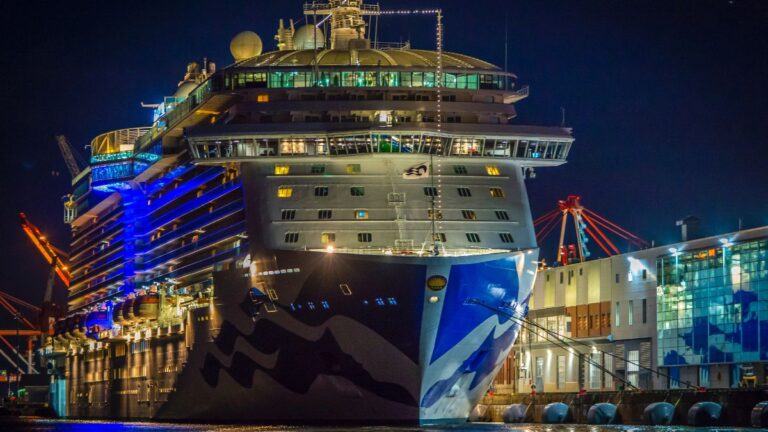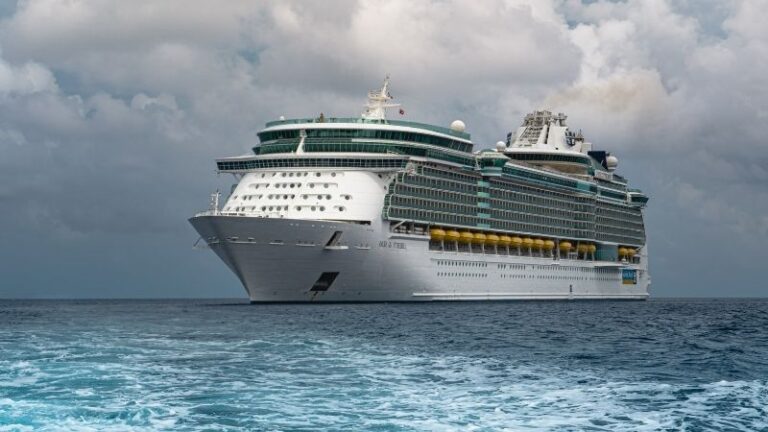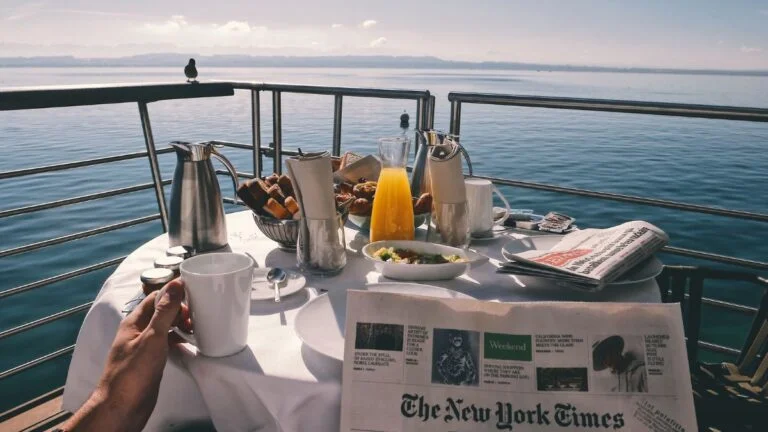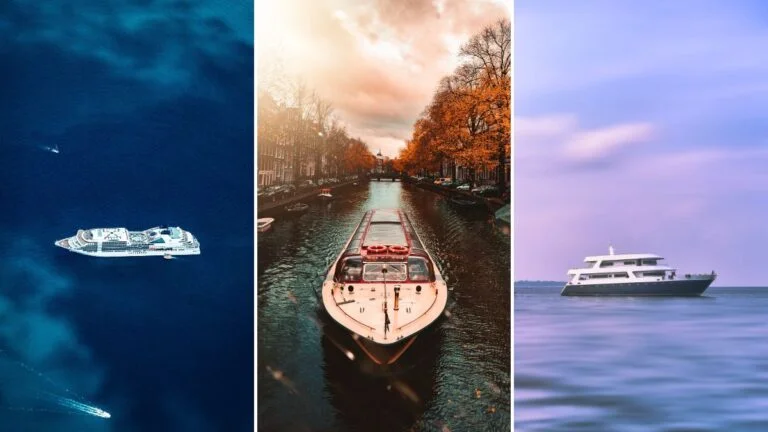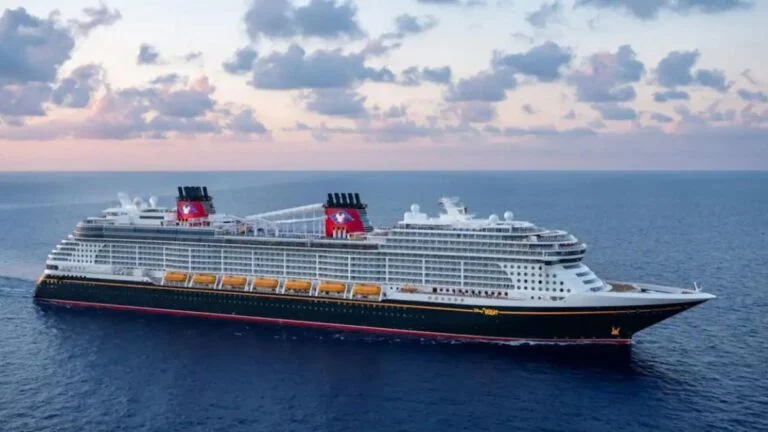Cruise Vs. Land Vacation: Pros and Cons
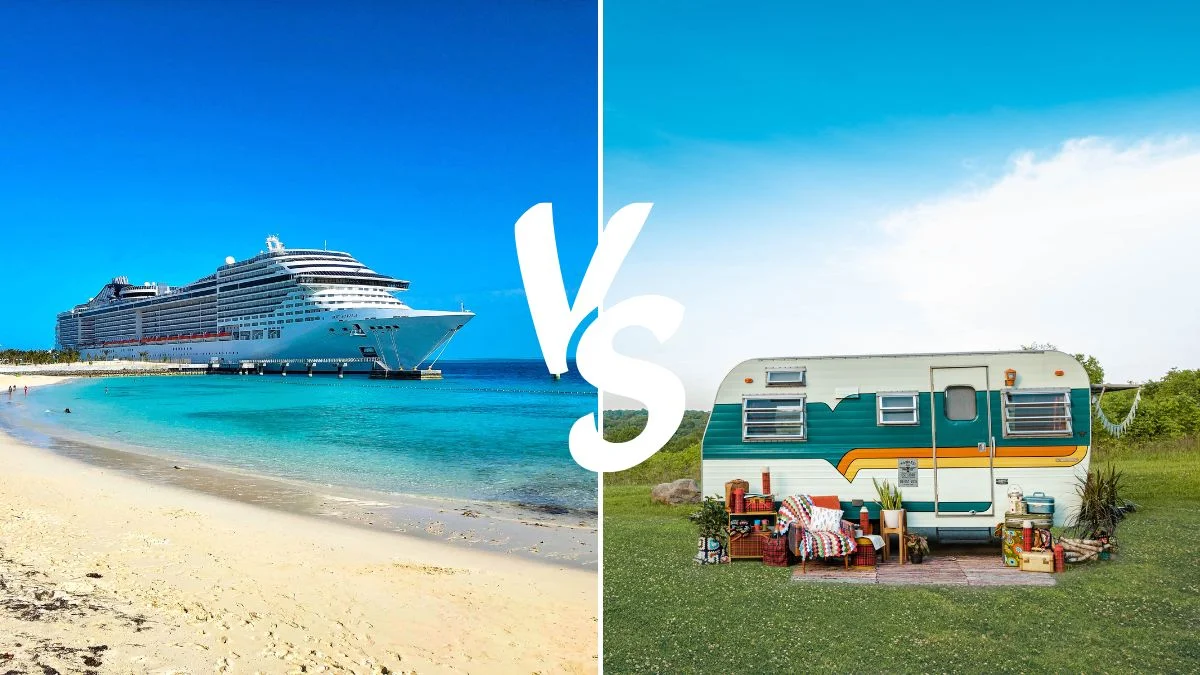
As participants in Amazon Associates and other programs, we earn from qualifying purchases. This comes at no additional cost to you. For more details, see our Affiliate Disclosure.
When it comes to selecting your next vacation, the choice can often come down to sailing the open seas or traversing the varied landscapes of land. Both options offer unique experiences, but they also present their own set of advantages and challenges. Whether it’s the allure of an all-inclusive cruise journey with predetermined itineraries or the freedom and exploration that comes with a land-based vacation, choosing the right getaway requires careful consideration.
This article delves into the pros and cons of both vacation styles, providing you with a comprehensive comparison to help you decide on your ideal holiday experience.
All-Inclusive Convenience: The Pros of Cruise Vacations
Embarking on a cruise vacation can offer an array of benefits, many of which are attributed to their all-inclusive convenience. Here are some of the key pros that make cruise vacations an attractive option for many travelers:
1. Hassle-Free Planning: When you book a cruise, your itinerary is planned out for you. The cruise line organizes the destinations, activities, and entertainment. This means less stress in planning and more time to relax and enjoy your vacation.
2. Wide Range of Amenities and Activities: Cruises often come packed with a variety of amenities and onboard activities. From pools, spas, and gyms to entertainment like shows, concerts, and movies, there’s usually something for everyone.
3. Varied Cuisine Options: Cruise ships often offer an array of dining options. With various restaurants, buffets, and sometimes even high-end specialty dining experiences, you can indulge in a variety of global cuisines.
4. Simplified Budgeting: Since most cruises are all-inclusive, you typically pay one upfront price that covers your accommodation, meals, and entertainment. This can make budgeting for your vacation much simpler.
5. Opportunity to Visit Multiple Destinations: Cruises provide a unique opportunity to visit multiple destinations in one trip without the hassle of arranging separate travel logistics for each location.
6. Social Environment: Cruises offer a unique social environment, with plenty of opportunities to meet new people from different parts of the world. Whether it’s during planned activities or over dinner, you’re likely to make new friends along the way.
While cruises certainly offer a host of benefits, it’s also important to keep in mind that they might not be the ideal choice for everyone. The following sections will delve into the downsides of cruising, as well as the pros and cons of land vacations.
Limited Freedom: The Cons of Cruise Vacations
As much as cruise vacations offer convenience and a plethora of activities, they also come with certain drawbacks, particularly concerning the limits they place on your freedom and flexibility. Here are some key considerations:
1. Fixed Itineraries: The preset itineraries of cruise vacations mean you have limited freedom in deciding where and when you want to visit. This can be particularly limiting for travelers who love to wander and discover off-the-beaten-path experiences.
2. Limited Time at Destinations: Cruise ship schedules dictate how much time you spend in each port, which can often be just a few hours. This often leaves little time for thorough exploration or spontaneous plans.
3. Lack of Local Experiences: Due to the time constraints and the structured nature of port excursions, you may not have the opportunity to immerse yourself in local cultures, cuisines, and traditions to the extent you would on a land vacation.
4. Unexpected Additional Costs: Although most cruises are advertised as all-inclusive, some experiences and amenities are not always covered. For example, you may need to pay extra for specialty dining, certain activities or experiences, spa treatments, and gratuities.
5. Less Privacy: Cruise ships can host thousands of passengers, which means you’re sharing the space with a lot of other people. This can lead to crowded public areas and less privacy than you’d get in a private hotel room or rental property.
6. Seasickness: Not everyone is suited to life at sea. If you’re prone to motion sickness, a cruise vacation could be uncomfortable, especially in rough seas.
Just as with the pros, these cons of cruise vacations don’t apply to everyone. Some people may find the structured nature and communal experience of cruises more appealing than the uncertainty and planning involved in a land vacation.
Exploration and Flexibility: The Pros of Land Vacations
Taking a land-based vacation offers its own unique benefits, centered largely around the opportunity for exploration and flexibility. Here are some of the primary advantages:
1. Freedom to Choose Your Itinerary: Unlike cruises, land vacations give you complete control over your itinerary. You decide where to go, what to see, and how much time you want to spend at each location.
2. Immersive Cultural Experiences: When you stay in a city or region for more than a day or two, you have ample time to immerse yourself in the local culture. This might mean exploring the local cuisine, visiting historical sites, or experiencing traditional customs and festivals.
3. More Accommodation Options: With a land vacation, you can choose from a wide array of accommodation options to suit your preferences and budget, from luxury hotels and quaint bed-and-breakfasts to vacation rentals and camping.
4. Flexibility to Adapt Your Plans: If you’re particularly enjoying a place, you have the flexibility to extend your stay. Similarly, if the weather takes a turn for the worse, you can adapt your plans accordingly.
5. Opportunities for Adventure and Outdoor Activities: Land vacations often provide more opportunities for outdoor adventures. Whether it’s hiking in the mountains, exploring national parks, or trying extreme sports, the choices are almost limitless.
6. No Seasickness Worries: If you’re someone who’s prone to seasickness, a land vacation eliminates this concern entirely.
As with everything, land vacations also have their potential downsides. The next section will outline some of the cons associated with this type of travel, providing a fuller picture to help you make an informed decision.
Travel Logistics and Unexpected Costs: The Cons of Land Vacations
Despite the many pros of land vacations, there are also certain drawbacks that need to be considered. Here are some of the primary cons:
1. More Planning Required: Unlike a cruise, a land vacation requires you to plan your itinerary, transportation, accommodations, meals, and more. This can be time-consuming and potentially stressful, particularly for international travel.
2. Variable Costs: While you have the flexibility to control your budget in many ways, costs can also vary dramatically and unexpected expenses can arise. Things like meals, activities, local transportation, and entrance fees to attractions can add up quickly.
3. Limited Access to Multiple Destinations: Unless you’re planning a road trip or a tour, it can be difficult to visit multiple destinations in one trip without dealing with the hassle of arranging and managing multiple travel schedules.
4. More Travel Time: Depending on your destination, a land vacation can involve more travel time. For example, if you’re planning to visit several cities in different parts of a country, you’ll spend more time in transit than you would on a cruise.
5. Fewer Inclusive Amenities: Unlike cruises, hotels and vacation rentals don’t usually come with inclusive amenities such as entertainment, a variety of dining options, or scheduled activities.
6. Greater Responsibility: With a land vacation, you’re in charge. While this allows for more freedom, it also means more responsibility for things to go smoothly.
While these cons can make land vacations seem daunting, many travelers enjoy the freedom, flexibility, and opportunities for deeper cultural immersion that they offer.
Comparing Costs: Cruise Vs. Land Vacations
Comparing costs between cruises and land vacations is not always a straightforward process due to the varied nature of the included amenities and the overall experience. However, a general overview can still provide a good idea of how the costs stack up against each other.
Cruise Vacations
Cruise prices vary depending on several factors, including the cruise line, the length of the cruise, the destination, and the type of cabin you choose. As of 2023, a 7-day Caribbean cruise in a mid-range cabin might cost around $700-$1,000 per person, which includes meals, accommodation, and onboard entertainment.
However, there are additional costs to consider. Excursions, which are typically priced per person, can range from $30 for a simple sightseeing tour to $200 for more extensive experiences. Also, specialty dining, alcoholic beverages, spa treatments, gratuities, and other amenities may carry additional charges.
Land Vacations
The cost of land vacations can vary even more dramatically, depending on factors like destination, travel season, accommodation choices, and daily activities. Consider a 7-day vacation in a popular city like Paris. As of 2023, budget travelers might spend around $1,000-$1,500 per person, while those preferring more luxury accommodations and dining might spend $2,500-$3,500 per person or more.
This cost would cover flights, accommodation, meals, local transportation, and entrance fees for attractions. Keep in mind, this does not include the cost of any guided tours or special activities.
Here’s a simplified comparison table summarizing the costs for a 7-day vacation:
| Cruise Vacation (Mid-Range) | Land Vacation (Budget to Luxury) | |
|---|---|---|
| Basic Cost (Accommodation, Meals, Entertainment) | $700-$1,000 | $1,000-$3,500 |
| Excursions/Activities | $30-$200 per activity | Varies based on activity |
| Additional Amenities (Specialty Dining, Spa, etc.) | Varies | Not typically included |
| Total Estimated Cost | ~$1,000-$1,500 | ~$1,000-$3,500+ |
Remember, these are rough estimates and actual costs can vary widely. Always do thorough research and budgeting before booking your trip.
Variety of Activities: Land Vs. Cruise Vacations
The variety of activities available is a key aspect to consider when choosing between a land vacation and a cruise. Both options can provide a wide array of activities, but the nature and extent of these can vary significantly.
Cruise Vacations
Cruise ships often resemble floating cities, packed with a range of amenities and entertainment options. Common onboard activities can include:
- Live shows and concerts
- Movie screenings
- Gym facilities
- Spa treatments
- Swimming pools and water slides
- Cooking classes
- Art auctions
- Casino games
- Themed parties
- Kids clubs for families
In addition to onboard activities, cruise lines offer a variety of shore excursions at each port of call. These might include guided tours, beach visits, water sports, cultural experiences, hiking trips, and more. However, the time in each destination is typically limited to a few hours.
Land Vacations
On a land vacation, the variety of activities available largely depends on your destination. City destinations might offer museums, art galleries, historical sites, shopping, dining, and nightlife. If you prefer nature and adventure, you could opt for a destination that offers hiking, camping, rock climbing, or wildlife viewing. Beach destinations, meanwhile, could provide opportunities for swimming, surfing, sunbathing, or diving.
Land vacations offer the flexibility to explore at your own pace. You can choose to spend as much or as little time as you want at each attraction, and you have more opportunity to discover hidden gems and local spots.
Dining Options: Aboard a Cruise Vs. On Land
Food and dining experiences play a significant role in any vacation. Both cruises and land vacations offer a range of dining options, but there are key differences in terms of variety, experience, and cost.
Cruise Dining
Cruise ships typically offer a multitude of dining options, from casual buffet-style meals to formal dining rooms, and often even specialty restaurants. Your meals are usually included in the price of the cruise, making it easy to budget for food costs.
- Buffets and Main Dining Rooms: These venues provide a range of options to cater to different tastes. You can often find everything from salads and sandwiches to pasta, seafood, and desserts.
- Specialty Dining: These restaurants usually offer a more upscale dining experience, often with cuisine from a specific region of the world. However, these venues typically come with an additional charge.
- Room Service: Many cruises offer room service, allowing you to dine in the comfort of your cabin. Depending on the cruise line, this may be available 24/7.
While cruises offer a lot of variety, the dining options can sometimes lack the authenticity of local cuisines, as meals are prepared to cater to a wide range of passenger tastes.
Land Vacation Dining
Dining on a land vacation can offer a more immersive experience, particularly if you’re a food enthusiast interested in trying authentic local cuisine.
- Local Cuisine: This is one of the biggest advantages of a land vacation. You can explore local markets, dine at restaurants loved by locals, and even take cooking classes to learn how to prepare regional dishes.
- Variety: Depending on your location, you could have a wide array of dining options, from street food vendors to luxury restaurants.
- Flexibility: You have the freedom to choose where and when you want to eat, without adhering to specific meal times.
While dining on a land vacation offers greater cultural immersion, it also requires more planning and budgeting, as meals are typically not included in the price of your accommodation.
Accommodation Comfort: Cruise Cabins Vs. Hotels
The comfort of your accommodation can greatly impact the overall enjoyment of your vacation. Here’s how the accommodations compare between cruise vacations and land vacations:
Cruise Cabins
On a cruise ship, your options range from inside cabins with no windows to suites with private balconies. The comfort level varies accordingly.
- Inside Cabins: These are the most basic and affordable options. They offer a cozy place to sleep and refresh, but lack natural light and can feel small.
- Outside Cabins: These have a window or porthole that provides some natural light and a view of the sea, making the space feel slightly larger.
- Balcony Cabins: These cabins come with private balconies, providing a private space to enjoy the fresh air and views. They’re larger and usually offer a small seating area.
- Suites: Suites are the largest and most luxurious accommodations onboard. They often come with separate living areas, larger bathrooms, and expansive balconies. Some even offer perks like priority boarding and concierge service.
Regardless of the type, cruise cabins are typically smaller than hotel rooms and have limited storage space. They’re designed to be functional and efficient, but you won’t spend much time there with all the activities on the ship.
Hotel Rooms
Land vacations offer a wide range of accommodation options, from budget-friendly hostels to luxury resorts.
- Budget Hotels/Hostels: These options offer basic amenities and often have shared bathrooms. They’re ideal for budget travelers who plan on spending most of their time exploring.
- Mid-Range Hotels: These offer comfortable private rooms with ensuite bathrooms, and often include amenities like a TV, a small fridge, and possibly a hotel restaurant or pool.
- Luxury Hotels/Resorts: These offer spacious and luxuriously furnished rooms or suites, multiple dining options, room service, pools, spa facilities, and sometimes even personalized services.
- Vacation Rentals: These can range from small apartments to large villies. They often come with a kitchen, allowing you to prepare your own meals, and can offer a more local living experience.
Making Your Decision
Choosing between a cruise and a land vacation ultimately comes down to your personal travel preferences, your budget, and what you’re looking to get out of your vacation.
Cruise Vacations might be the better choice if you:
- Prefer a vacation with all-inclusive amenities
- Want to visit multiple destinations without the hassle of planning and traveling independently
- Enjoy having a variety of organized activities and entertainment readily available
- Prefer a vacation with predictable costs
- Are traveling as a family or group with diverse interests and ages
However, Land Vacations could be more suited to you if you:
- Value the freedom to create your own itinerary and explore at your own pace
- Are seeking an immersive cultural experience and authentic local cuisine
- Enjoy having a wide choice of accommodation options to suit your budget and style
- Don’t mind dealing with the logistics of travel and meal planning
- Want to spend more time in each destination
Neither option is inherently better than the other. It’s about understanding what each type of vacation offers and aligning this with your personal preferences and vacation desires.
Whether you’re gliding across the sea on a luxurious liner or discovering hidden gems in a beautiful city, the most important thing is that you choose the vacation that will offer you the most joy and satisfaction. After all, the purpose of any vacation is to relax, explore, and create lasting memories.

